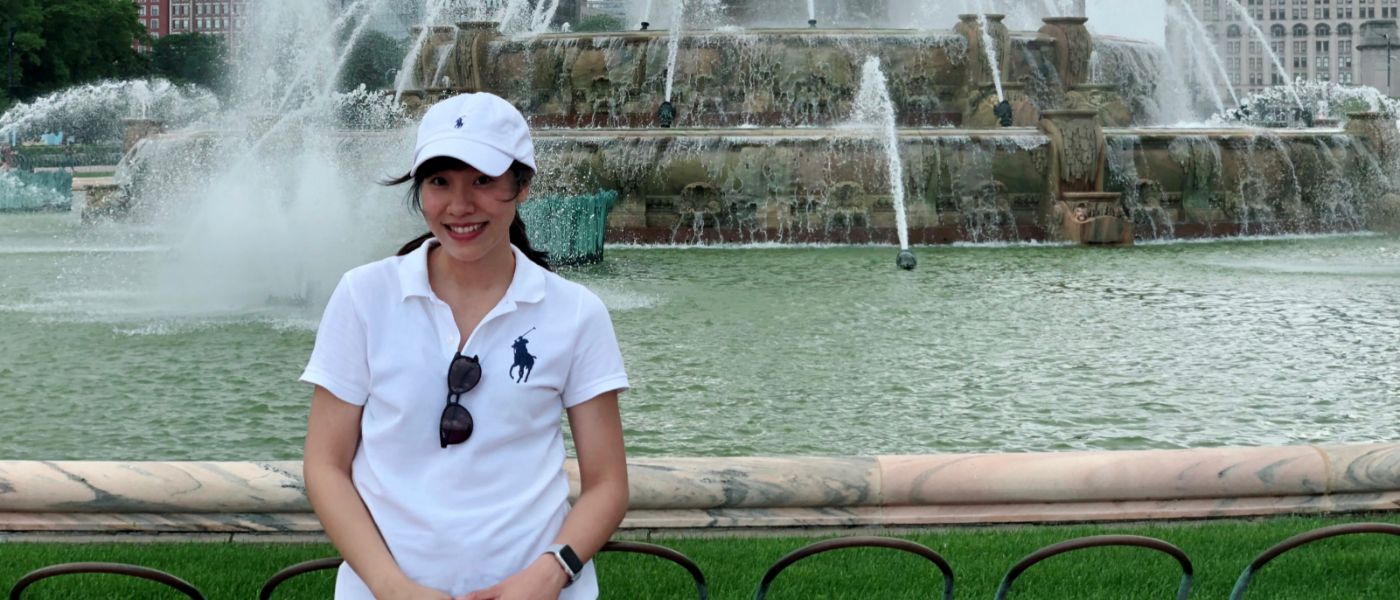Pinunta (Petch) Nittayacharn first arrived at Case Western Reserve University in 2016 to pursue a PhD in biomedical engineering with support from the Royal Thai Government Scholarship under the Ministry of Science and Technology. Upon graduating in 2022, she remained at the university and is now in her second year as a postdoctoral scholar in the Department of Radiology.
Working alongside her mentor, Agata Exner, vice chair of basic research in the Department of Radiology, Nittayacharn’s research centers on the development of theragnostic ultrasound-mediated drug-loaded nanobubbles for cancer treatment. Her ongoing projects include enhancing therapeutic efficiency through nanobubble-based mRNA delivery and exploring the immunotherapeutic potential of nanobubbles through collaboration.
Nittayacharn has been widely recognized for her work, most notably the Global Research Fellowship from Moderna—given to fewer than 50 fellows globally—to pursue development of nanobubbles as mRNA delivery vehicles. She also was selected, after a highly competitive application process, to attend the 2023 Landau Nobel Laureates meeting as one of six representatives from Thailand, her home country.
Nittayacharn also won the Ebert Prize from the American Pharmacists Association and has presented her work at three international conferences through oral presentations and delivered five poster presentations.
At CWRU, she has served as a junior mentor for Cancer-focused Summer Undergraduate Research (CanSUR) Program and is supervising graduate students.
“She works extremely hard, and is my go-to person in the lab,” Exner said of Nittayacharn. “She is highly reliable, does rigorous, careful research, she is thoughtful and meticulous in her methodology. She writes very well, and she can work and motivate herself independently. She is showing more and more her motivation and transition to independence—which is so exciting to witness. I have been extremely fortunate to have her as part of my group.”
View a list of Nittayacharn’s publications and learn more about her in the Q&A below.
Answers have been lightly edited for length and clarity.
1. What has been your best experience so far as a CWRU postdoc?
CWRU, particularly in the Exner Lab, fosters a fantastic sense of community. Collaboration extends beyond research to encompass various aspects, creating a supportive environment. My mentorship experience has been exceptional, as I’ve had the opportunity to learn extensively from my principal investigator (PI) while also honing my own mentoring skills. Importantly, I have secured my own grant, providing a valuable opportunity for me to gain insights into the role of a PI. This experience will enable me to develop essential skills in management and interpersonal interactions.
2. What’s your best piece of advice on how postdocs can make the most of their postdoc career and prepare for their future goals?
I would advise to “set clear goals and create a plan!” It’s essential to have a clear vision of your short- and long-term goals during your postdoc. Define what skills, experiences and achievements you want to gain. Create a strategic plan outlining the steps you need to take to achieve these goals. This will give you direction and purpose throughout your postdoc career.
3. What are your career goals after your postdoc?
I am honored to have been awarded a scholarship by the Thai government and to have secured a faculty position at Mahidol University. My ultimate career aspiration is to become a professor, enabling me to contribute significantly to academia and research. I hope to have the privilege of guiding my own research group and potentially making a meaningful contribution to my field in Thailand.
My overarching goal is to drive research toward practical applications. I aim to help connect research with industry by driving innovations toward practical applications. My ultimate goal is to ensure that these technologies are available to all in Thailand, regardless of their background or resources, with the intention of both advancing my field scientifically and enhancing the quality of life for Thai people.

